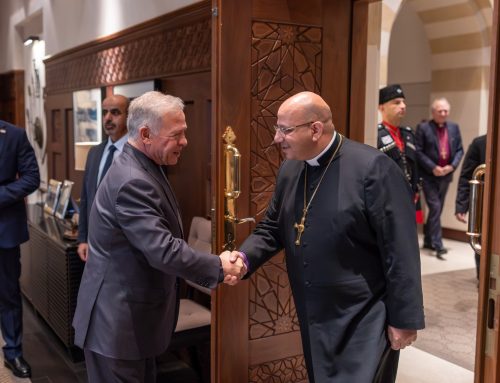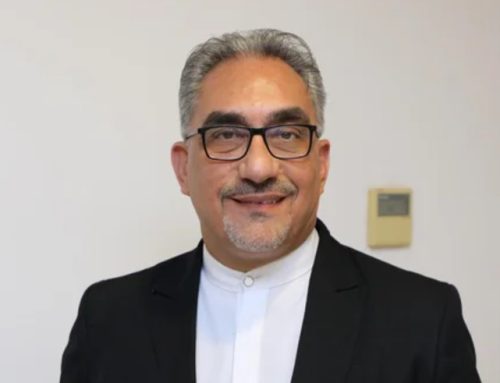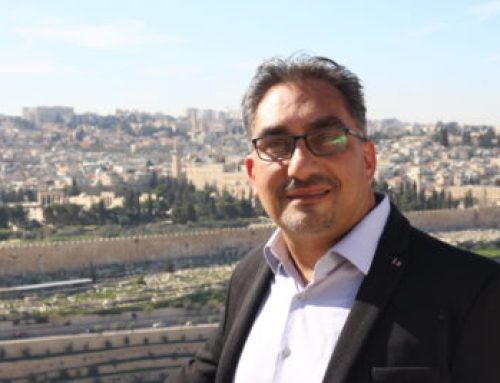The school year is about to start here in Palestine, but exactly what it will look like this year is anyone’s guess. Most families are looking at the situation with extreme anxiety. Are the government schools going to open as striking teachers protest the non-payment of salaries?
The school year is about to start here in Palestine, but exactly what it will look like this year is anyone’s guess. Most families are looking at the situation with extreme anxiety. Are the government schools going to open as striking teachers protest the non-payment of salaries? How can families register their children for school with all of the accompanying fees for school books, stationary, uniforms, transportation and when they have balances owing from the last year which they cannot pay?
One woman came to our office yesterday with three small children all seeking to register them in school. She was told that she had to pay her outstanding bill from last year before she could think to register them for this year. Unfortunately, she is a homemaker and her husband is terminally ill with liver cancer. She is trying just to figure out how to put food on the table to feed her family, but now faces the additional problem of finding a way to keep her children in school with the fact that her husband, a man of 43, will die any time of liver cancer.
“People are seriously depressed,” said Mervat Naber, head of Caritas Jerusalem’s Social department. “They are going into their sixth month without government wages. What would any of us do under these circumstances? The mood in Palestine is simply awful and morose. Yesterday, in my office, I received one phone call after the other requesting help for students in schools and universities. People do not have money to pay their bills. Schools and universities, facing mounting debts from unpaid bills from last year, have had to institute strict policies on registrations for the upcoming year. Either the people clear their debts, pay 1/2 of their due fees up front, pay for their books and uniforms in advance, or they face the fact that their children will not be registered for school,” said Mervat Naber.
The issue of the school year is on many minds. It is scheduled to begin on September 2 and no one knows if it will start on time. Because teachers have not been paid, many are contemplating holding a strike in protest of non-payment of their wages. Many of these teachers cannot afford to travel to their schools and many of their students and their families cannot afford school bags, school books or supplies. Teachers do not wish to go on strike, but they are wondering if they will ever get paid and be able to take care of their own families.
Tensions to travel to school are also on the minds of children and their parents. Save the Children reported that “some children are afraid of the long walk to school, because of ongoing military activity near their homes, and parents face the difficult decision whether to send their children out on the street or not.”
We at Caritas Jerusalem are hearing the same things from parents, particularly those whose children have to travel long distances to go to school because they do not have schools near their homes. Children also face serious delays in reaching their schools and returning home due to delays caused by traffic as a result of the building of the Wall.
Of course, teachers are not the only employees of the Palestinian National Authority waiting to receive their salaries. Everything in Palestine is tied to the PNA’s inability to pay its employees and in the cut off of aid from the donor community and the withholding of customs revenue from the Israeli government (which according to UN OCHA “amounts to roughly $60 million per month or roughly 50% of PA revenues.”-The Humanitarian Monitor, 7/06, pg. 1). A trickle of support has come through, but it is just a drop in the bucket of what is needed. “A minimum payment of NIS 1,200 (US$260) was made to all PA employees on 22 July.
NGO’s are also feeling the cut off in support. Many NGO’s are cutting back on their programs, moving offices, laying off staff and not able to respond because their funding has been cut. The response to the UN Consolidated Appeals Process (CAP) appeal for funding where some $383 million dollars was requested (revised up from $215 million) has been only 39% of the total requested. Smaller NGOs and community based organization face similar or worse shortfalls which negatively affects their programs. Many NGOs who requested assistance through the CAP process have received nothing.
Of course, the poorest of the poor are suffering the most. The Palestinian Ministry of Social Affairs “began the distribution of March 2006 cash subsidies to 40,289 Social Hardship Cases (SHC) in the West Bank and Gaza Strip. These families received subsidies of between NIS 100 and 600 NIS (US$24 and 136) per family depending on the household size and composition. However, the equivalent of four months of cash subsidies to these families remained outstanding at the end of July.”(OCHA, The Humanitarian Monitor, July 2006, pg. 2) These families are the elderly, the chronically ill, those with handicapped members, the injured, widows, and other vulnerable segments of the society. Because of the current situation, Caritas Jerusalem has been inundated with requests for social assistance from the poor.
Due to the dramatic deterioration in the situation in Palestine, particularly in the Gaza Strip, Caritas Jerusalem has submitted a revised SOA to Caritas Internationalis for about $2.4 million dollars (USD) with increased support requested for family support (food, water, direct social assistance) and for urgent medical treatment due to injuries received as a result on the ongoing violence in Gaza and the West Bank. Caritas Jerusalem is requesting interested parties who wish to support this appeal to contact us.





